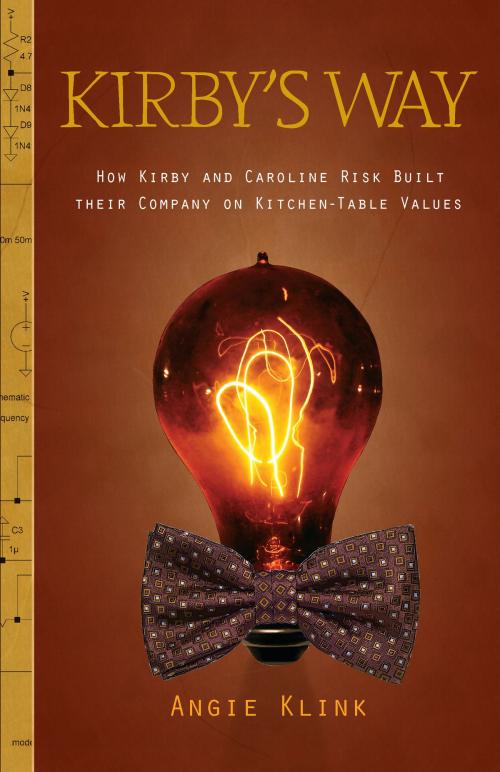Kirby’s Way
How Kirby and Caroline Risk Built their Company on Kitchen-Table Values
Biography & Memoir, Business, Nonfiction, History, Americas, United States, 20th Century| Author: | Angie Klink | ISBN: | 9781612492209 |
| Publisher: | Purdue University Press | Publication: | July 15, 2012 |
| Imprint: | Purdue University Press | Language: | English |
| Author: | Angie Klink |
| ISBN: | 9781612492209 |
| Publisher: | Purdue University Press |
| Publication: | July 15, 2012 |
| Imprint: | Purdue University Press |
| Language: | English |
The late J. Kirby Risk II called himself "a small-town businessman from the banks of the Wabash." He was much more. The fastidious, dapper man from Lafayette, Indiana, exuded philanthropy and free enterprise. Like a sheepdog, he tended the flock, rounded up strays, darted to key places to close up stragglers, and nudged everyone toward a common goal. Sometimes his stubborn persistence caused clashes. His demanding behavior was for good, no matter what others thought. That was Kirby's way. Kirby's integrity was the basis for his two occupations. His first career was compassion, and his second career was the building of the battery company he cofounded in 1926 with $500 borrowed from his father. Today, Kirby Risk Corporation is a multimillion-dollar electrical products and services industry headquartered in Lafayette, Indiana, and led by Kirby's son, Jim. Kirby's Way captures the essence of this imitable gentleman, who with his wife of fifty-five years, Caroline, raised four children, gave time, money, and meals to strangers, refugees, Purdue University students, and their beloved community, while building from their kitchen table a successful Midwest corporation. He believed in "sacrificial service." Kirby noticed people. He recognized their importance. In turn, they loved him and wanted to help him. He dwelled on his favorite song, "Mankind is My Business." Relationships shaped his success. Kirby was quiet about his deeds. He lived the Bible passage, Matthew 6:3-"But when you do a kindness to someone, do it secretly-do not tell your left hand what your right hand is doing." Kirby Risk may not have wanted this book. Yet he would have esteemed it as a parable, a spiritual truth that compels readers to discover certainties for themselves. From heaven, he tends the flock and rounds up strays, so more people might live Kirby's Way.
The late J. Kirby Risk II called himself "a small-town businessman from the banks of the Wabash." He was much more. The fastidious, dapper man from Lafayette, Indiana, exuded philanthropy and free enterprise. Like a sheepdog, he tended the flock, rounded up strays, darted to key places to close up stragglers, and nudged everyone toward a common goal. Sometimes his stubborn persistence caused clashes. His demanding behavior was for good, no matter what others thought. That was Kirby's way. Kirby's integrity was the basis for his two occupations. His first career was compassion, and his second career was the building of the battery company he cofounded in 1926 with $500 borrowed from his father. Today, Kirby Risk Corporation is a multimillion-dollar electrical products and services industry headquartered in Lafayette, Indiana, and led by Kirby's son, Jim. Kirby's Way captures the essence of this imitable gentleman, who with his wife of fifty-five years, Caroline, raised four children, gave time, money, and meals to strangers, refugees, Purdue University students, and their beloved community, while building from their kitchen table a successful Midwest corporation. He believed in "sacrificial service." Kirby noticed people. He recognized their importance. In turn, they loved him and wanted to help him. He dwelled on his favorite song, "Mankind is My Business." Relationships shaped his success. Kirby was quiet about his deeds. He lived the Bible passage, Matthew 6:3-"But when you do a kindness to someone, do it secretly-do not tell your left hand what your right hand is doing." Kirby Risk may not have wanted this book. Yet he would have esteemed it as a parable, a spiritual truth that compels readers to discover certainties for themselves. From heaven, he tends the flock and rounds up strays, so more people might live Kirby's Way.















